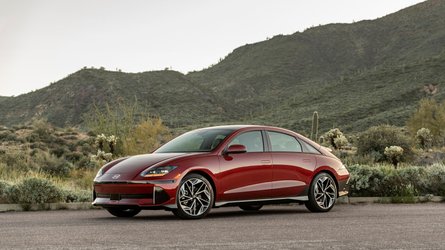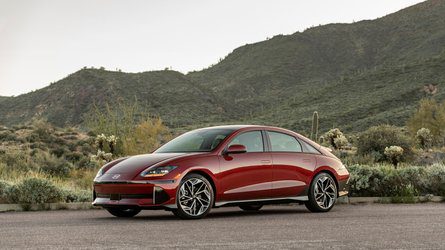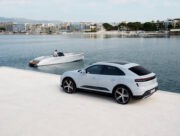Hyundai Motor Company reported a 21 percent year-over-year increase in global vehicle sales in March, with 381,885 units sold. During the first quarter of 2023, the company sold slightly over 1 million vehicles (up 13 percent year-over-year). However, the most important thing is how fast the group is increasing plug-in electric car sales. According to Hyundai Motor Company, last month, the combined wholesale shipments (closely related to production) of Hyundai and Genesis plug-in cars amounted to 34,125 (up 110 percent year-over-year). This is estimated to be around nine percent of the total volume.
The Hyundai sales report includes sales numbers from the plants in South Korea, Europe (Kona Electric and Tucson PHEV), Indonesia (Ioniq 5), and plants in China and India (both small numbers), as well as in the United States. The data indicates that both all-electric and plug-in hybrid vehicle wholesale shipments reached monthly records. In the case of BEVs, it’s more than 28,600 for the very first time, while in the case of PHEVs, it’s more than 5,400 units. The company itself reports more than 24,000 all-electric vehicle sales (compared to 28,000+ wholesale shipments).
So far this year, the wholesale shipments exceeded 85,000 (up 89 percent year-over-year). Wholesale shipments volume by powertrain type year-to-date: BEVs: 71,958 (up 111%) PHEVs: 13,249 (up 21%) Total plug-ins: 85,207 (up 89%) FCVs: 2,051 (up 40%). For reference, in 2022 Hyundai Motor Company sold more than 240,000 plug-in electric cars (up 45 percent year-over-year), including nearly 195,000 all-electric (up 56 percent).
The Hyundai brand, which is responsible for the majority of the company’s plug-in car sales, noted a 114 percent year-over-year increase in plug-in car wholesale shipments, to over 31,000. All results are a record high. Hyundai wholesale shipments volume by powertrain type: BEVs: 25,930 (up 127%) PHEVs: 5,445 (up 68%) Total plug-ins: 31,375 (up 114%) FCVs: 723 (up 62%). Wholesale shipments volume by powertrain type YTD: BEVs: 66,173 (up 109%) PHEVs: 13,249 (up 21%) Total plug-ins: 79,422 (up 86%) FCVs: 2,051 (up 40%).
The Hyundai Ioniq 5 remains the top model in Hyundai’s EV lineup, with the Hyundai Ioniq 6 now the second most popular all-electric model with a new record result in March. It seems that the production of E-GMP-based models exceeded 18,000 last month. In 2023, the lineup will be joined by the Ioniq 5 N – “the company’s first high-performance EV, with details to be unveiled in the coming months.” In the pipeline is also the all-new Kona, which will have an all-electric version.
Genesis brand reported 2,750 wholesale shipments of all-electric cars (GV60, Electrified GV70, and Electrified G80) last month (up 75 percent year-over-year). This includes local production of nearly 200 Electrified GV70 in the US. The hydrogen fuel cell model — Hyundai NEXO — noted 723 units last month (and 2,051 YTD).
Hyundai Motor maintained its electric vehicle (EV) sales momentum by selling over 24,000 units in March. This is a testament to the company’s commitment to increasing its plug-in electric car sales and its dedication to providing customers with more sustainable transportation options.
FAQ
Q1: Are electric car batteries recyclable?
A1: Yes, electric car batteries are recyclable.
Q2: Are electric car chargers free?
A2: It depends on the charger and the location. Some electric car chargers are free, while others may require a fee.
Q3: Can electric car batteries be rebuilt?
A3: Yes, electric car batteries can be rebuilt with the right tools and knowledge.









